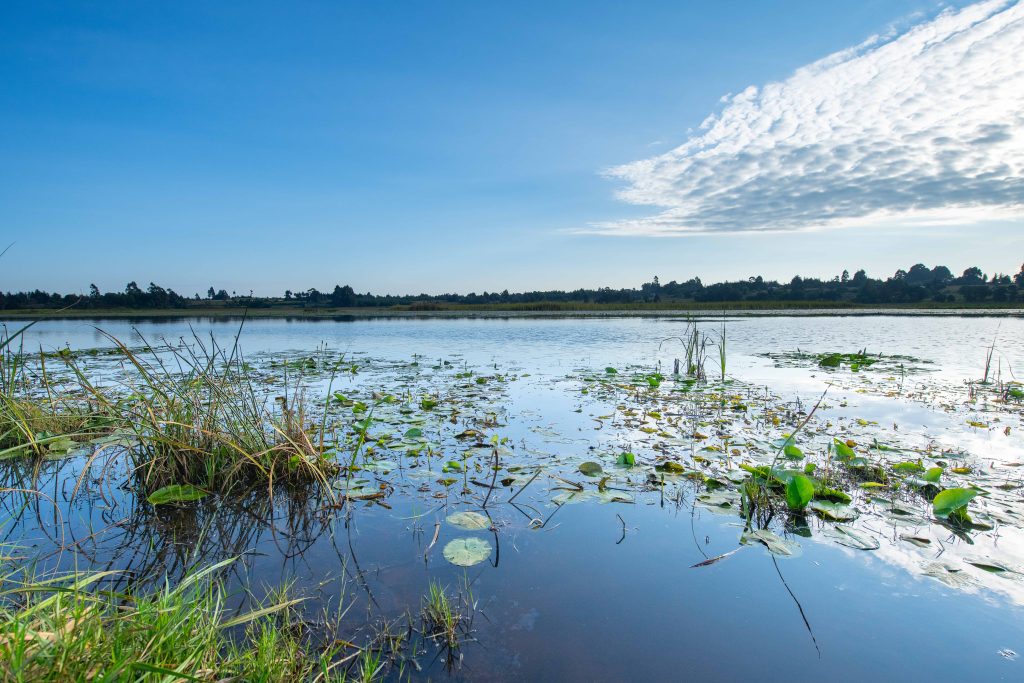- Can schools or youth groups participate in EIWF programs?
Absolutely! EIWF promotes environmental education by partnering with schools for tree-planting and watershed conservation activities as well as offering youth engagement programs to inspire future conservation leaders.
- Where can I find reports and publications from EIWF?
All EIWF reports and publications are available under the resources section of our website.
- Where can I visit an EIWF project site?
EIWF has active projects across Uasin Gishu and Elgeyo Marakwet counties. Interested visitors can contact EIWF through the contacts provided to arrange for a guided field visits.
- Who manages the EIWF?
EIWF is a multistakeholder initiative involving: The Nature Conservancy (TNC), Eldoret Water and Sanitation Company (ELDOWAS), the county governments of Uasin Gishu and Elgeyo Marakwet, and other local partners.
- Why was the EIWF established?
The Eldoret-Iten Water Fund (EIWF) was established to secure and improve water quality and quantity in the watershed that serves Eldoret, Iten, and surrounding areas. The region is faced with challenges such as deforestation, soil erosion and water scarcity, which threaten water access for both downstream and upstream users. EIWF brings together stakeholders to implement Nature-Based Solutions (NBS) that restore degraded lands, enhance water flow, and ensure sustainable water management, improve livelihoods of the local community and and conserve biodiversity
- How is EIWF funded?
The seed funding for EIWF is through the Global Environmental Facility (GEF 7 Allocation), approved by Ministry of Environment, Climate Change and Forestry. International Fund for Agricultural Development is the implementing GEF Agency which appointed TNC as the executing agency. Through various sub-grant agreement, TNC engaged ELDOWAS as the main subgrantee hosting the project management unit.
Other funding source for the program is from public sector investment from the two county governments and corporate partnerships as well as private sector contributions from businesses that rely on water security.
- How does EIWF improve water security in Eldoret and Iten?
EIWF carries out source water protection through the implementation of Nature-based Solutions (NBS) to improve the water quality and quantity for downstream users. Through this, the program majorly works with local stakeholders in implementing sustainable land management practices, wetland and forest restoration as well as capacity building local community groups on conservation matters.
- What are Nature-Based Solutions and how does EIWF apply them?
These are approaches that work with nature to address environmental and climate challenges making our communities and ecosystems more resilient, adaptable and sustainable.
- What scientific approaches does EIWF use in water conservation?
a) Agroforestry to enhance soil stability, improve biodiversity and provide high value crops.
b) Terraces to reduce soil erosion and improve soil water retention.
c) Water pans to collect and store rainwater for irrigation and livestock ensuring steady water supply.
d) Grass strips to slow surface run off, trap soil and improve soil water retention for healthier crops.
e) Water quality monitoring to track sedimentation and pollution levels.
f) Application of management effectiveness tracking tool to determine level of management of protected forest
g) Biological Conditions Gradient has been applied to asses macro and micro invertebrates in the watersheds under restorations
- How does EIWF monitor and evaluate its impact?
EIWF tracks its impact through regular water quality assessment to measure sediment loads and overall river health, satellite and field-based monitoring of restored areas and community engagement to evaluate socio-economic benefits.
Through innovative technologies such as drone, 15 youths have been trained and engaged full time to collect and analyse high resolution drone imagery showing impact of the various interventions being undertaken.
- Are there opportunities for corporate or institutional partnerships?
Yes! EIWF welcomes partnerships with private companies, NGOs, and research institutions that align with its mission. Businesses can invest in watershed conservation as part of their corporate social responsibility (CSR) programs or sustainability commitments. The program is establishing an endowment fund that will ensure restoration activities continue in the long term.
- Are there training programs or workshops for farmers and local communities?
Yes, EIWF offers training to farmers and local communities on sustainable land management practices and on sustainable agriculture.
- How can I stay updated on EIWF’s latest activities and progress?
Subscribe to our newsletter for the latest updates and visit our website for reports, news, success stories and upcoming events.
- Does EIWF have a helpline or contact person for inquiries?
Yes! You can reach us through E-mail waterfund@eldowas.or.ke, Phone. No. +254 724 255 538 or directly via the contact us section.
- How does EIWF work with farmers and local communities?
EIWF collaborates with farmers, landowners, and local communities to promote sustainable land and water management practices through conducting trainings, supplying materials such as tree seedlings and conducting follow up to track impact.
